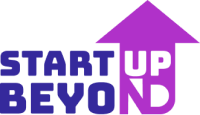
Not too long ago, when someone mentioned startup hubs, Silicon Valley, London City, or Beijing’s Zhongguancun would be the frontrunners. They seemed to hold a monopoly on tech innovation and entrepreneurship. Times have changed, and new players are entering the game.
Bangalore’s tech parks would be the easiest guess. But have you heard about what’s going on in Lagos or Sao Paulo yet? Exciting startup ecosystems are popping up in places that weren’t even on the radar a decade ago. These cities are buzzing with fresh ideas, backed by young talent, eager investors, and supportive governments.
Let’s get to know five of these rising stars—Bangalore, Lagos, São Paulo, Tallinn, and Ho Chi Minh City. What makes them tick, what industries they’re transforming, and what challenges do they still face? Whether you’re a founder, an investor, or just curious about how startups are shaping the future, this journey across the world’s emerging hubs is sure to inspire you.
What Makes a Startup Hub “Emerging”
What turns an ordinary city into a startup hub? It’s a mix of talent, money, and policies that create the right environment for entrepreneurship to thrive. Emerging hubs are places where startup ecosystems are growing faster than ever, fueled by young, tech-savvy talent and strong government or private investment.
But there’s more to it than just funding and infrastructure. These hubs often tackle local challenges in innovative ways, creating solutions tailored to their unique markets. For example, African startups are leveraging mobile technology to make banking accessible to millions. Meanwhile, cities in Southeast Asia are driving innovation in industries like e-commerce and gaming, sectors that align with their growing economies and cultural trends.
Top 5 Emerging Startup Hubs in 2025
As we dive into the top five emerging startup hubs, you’ll notice one thing: each city has its own flavor of innovation, shaped by the people, problems, and possibilities unique to their region.
Bangalore, India
Bangalore has become synonymous with India’s startup story. Often called the “Silicon Valley of India,” this city is home to over 40 unicorns, with names like Byju’s and Zerodha making headlines globally.
What makes Bangalore tick? A lot of it comes down to its enormous pool of talent. With India producing more than 1.5 million engineers annually, Bangalore attracts some of the brightest minds in the country. Many startups here focus on software, education technology, and fintech, industries that thrive on India’s growing internet and smartphone penetration.
It also helps that the Indian government has rolled out initiatives like Startup India, which provides tax exemptions and funding support for new businesses. Add to this the increasing flow of global venture capital—$25.2 billion in 2023 alone—and you have a recipe for a thriving ecosystem.
Lagos, Nigeria
Lagos is quickly earning its title as the “Silicon Valley of Africa.” The city leads the continent in startup activity, especially in fintech, where companies like Flutterwave and Paystack are revolutionizing the way people send and receive money.
A key driver of Lagos’ success is its massive market. Nigeria has the largest population in Africa, with over half its people under the age of 18. This young and digitally-savvy generation is driving demand for innovative solutions in payments, e-commerce, and healthtech.
The Nigerian government is also stepping up its game with policies like the Startup Act 2022, which offers tax holidays and protections for intellectual property. But it’s not just local investors taking notice—international firms are pouring money into Lagos’ startups, with the city raising over $1.3 billion in venture capital in 2023.
São Paulo, Brazil
São Paulo is the beating heart of Latin America’s startup ecosystem. With over 60% of Brazil’s venture funding flowing into this city, São Paulo has become a magnet for entrepreneurs and investors alike.
One of its biggest advantages is its huge market. São Paulo serves as a gateway to the rest of Brazil and Latin America, giving startups access to millions of customers. The city’s most vibrant sectors include fintech, agritech, and healthtech. Companies like Nubank, a digital banking giant, have put São Paulo on the global map.
Government initiatives like Invest SP are helping by connecting startups with global markets and resources, making São Paulo a regional hub for innovation and collaboration.
Tallinn, Estonia
For a small country, Estonia punches well above its weight in the startup world, and Tallinn is its crown jewel. With just 1.3 million people, Estonia has over 1,300 startups—one of the highest startup densities in the world.
Tallinn owes much of its success to its digital-first government. From its e-Residency program, which allows global entrepreneurs to register businesses in Estonia, to its fast and efficient bureaucracy, the city is tailor-made for startups.
Industries like cybersecurity, artificial intelligence, and SaaS dominate here, with global success stories like Skype, Bolt, and Pipedrive originating in Tallinn. Its supportive ecosystem and ease of doing business make it a top choice for entrepreneurs around the world.
Ho Chi Minh City, Vietnam
Ho Chi Minh City is leading Southeast Asia’s next big wave of innovation. Vietnam’s strong economic growth (7% annually pre-pandemic) and increasing foreign direct investment have set the stage for this city to rise.
Startups in Ho Chi Minh City thrive in sectors like e-commerce, gaming, and fintech. Local champions like Tiki.vn (an e-commerce platform) and MoMo (a leading mobile payment app) are driving the city’s growth.
The city also benefits from a young and educated workforce. It’s one of the most cost-effective startup ecosystems in the region, making it an attractive option for entrepreneurs and investors alike.
Key Factors Fueling Emerging Startup Hubs
Across these hubs, a few common factors stand out:
Access to Talent: Young, tech-savvy populations are driving innovation in these cities.
Access to Talent: Young, tech-savvy populations are driving innovation in these cities.
Funding: Global venture capital firms are increasingly looking beyond traditional markets.
Government Policies: Tax breaks, grants, and streamlined regulations are making it easier to start businesses.
Localized Innovation: Startups are solving unique, local problems, and creating new opportunities in underserved markets.
Challenges to Growth
While these hubs are growing quickly, they’re not without challenges:
Capital Dependence: Many hubs rely heavily on foreign investment, which can be unpredictable.
Brain Drain: Talented professionals often leave for opportunities in established hubs.
Regulatory Uncertainty: Policies in some regions are still evolving, which can create barriers for startups.
What the Future Holds for Startup Hubs
The rise of these startup hubs signals a shift in the global startup ecosystem. As more entrepreneurs look beyond traditional markets, these cities are stepping up to provide the talent, funding, and opportunities they need to thrive.
Whether they’re solving local problems or scaling global solutions, startups in emerging hubs are reshaping industries and redefining innovation. While challenges remain, their potential to drive economic growth and create opportunities is undeniable.
The world of startups is no longer confined to a handful of cities. With places like Bangalore, Lagos, São Paulo, Tallinn, and Ho Chi Minh City taking center stage, the future of entrepreneurship looks more global than ever. These hubs remind us that innovation knows no boundaries—it can thrive anywhere there’s passion, purpose, and a problem to solve.



